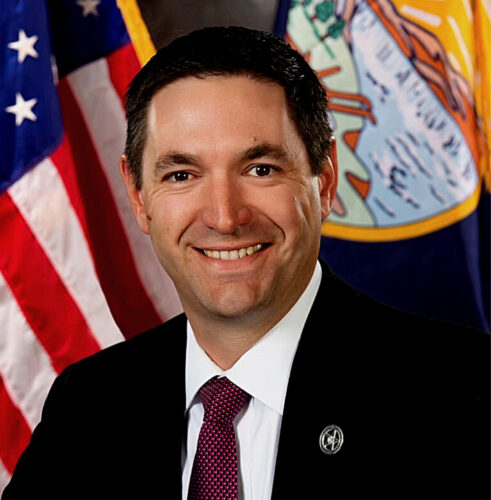Montana Attorney General Austin Knudsen has filed a lawsuit against TikTok, alleging the social media platform knowingly shares addictive and harmful content with children and teens, while engaging in deceptive practices that violate the Montana Consumer Protection Act.
The lawsuit follows a comprehensive investigation by the Montana Department of Justice, which found that TikTok presents “virtually endless amounts of extreme and mature videos” to users as young as thirteen. The investigation claims TikTok not only targets young audiences but has also designed its app to be addictive, misleading parents about the nature of the content accessible to their children.
“TikTok must be held accountable for poisoning the minds of children and lying to parents about the videos their children can view on the app,” Knudsen said. “As attorney general, it’s my job to hold bad actors deceiving Montanans accountable, and I intend to do just that.”
Under the Montana Consumer Protection Act, which safeguards residents from unfair or deceptive business practices, Knudsen seeks a permanent injunction requiring TikTok to stop its misleading conduct.
The lawsuit asserts that TikTok’s age ratings in app stores are deceptive. For instance, the platform claims in the Apple App Store that content related to profanity, sexual themes, and drug use is “infrequent and mild,” but the investigation revealed numerous examples of extreme content readily available to users.
Highlights of the findings include:
– Despite TikTok’s claims, videos featuring explicit language are widely viewed, with many achieving hundreds of millions of views.
– Content related to drug use, such as a video joking about the effects of ketamine, contradicts TikTok’s assertions of infrequent references.
– Sexual content is also prevalent, including explicit performances and discussions that are inappropriate for minors.
Additionally, TikTok’s “12+” age rating is questioned due to the accessibility of harmful content, including material promoting self-harm and eating disorders. The platform’s design features, aimed at keeping young users engaged, contribute to addictive behaviors detrimental to their mental and physical health.
For example, TikTok’s Live feature has been linked to dangerous activities like binge drinking, with one tragic incident involving a user who died from excessive alcohol consumption after receiving monetary rewards for his actions during a live stream.
The lawsuit also highlights TikTok’s misleading claims regarding its parental control features, such as “Restricted Mode,” which purports to limit exposure to inappropriate content. According to Knudsen, even when enabled, this feature fails to effectively restrict access to mature content, leaving parents misinformed about their children’s safety.
“Parents rely on these controls to limit the exposure of inappropriate content for their kids,” Knudsen stated in the lawsuit. “Misrepresentations about these so-called ‘safety’ features are particularly acute and deceptive.”
Knudsen’s legal action underscores a growing concern over the impact of social media on youth, aiming to hold TikTok accountable for practices that he argues endanger the well-being of Montana’s children.
Click here to read the lawsuit.

